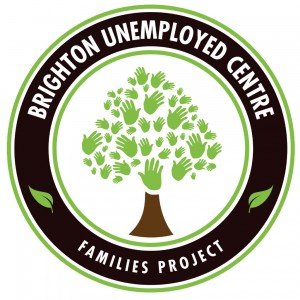At the moment, in Brighton & Hove, everyone who wants to make a new claim for benefits has to claim Universal Credit. From next year, the government is proposing to start the process of moving existing claimants over to Universal Credit. They have published proposed regulations to cover how this process would work.
Based on our experience of supporting hundreds of people to make and maintain Universal Credit claims in the last six months, we have submitted a response to the Social Security Advisory Committee's consultation about these plans.
Brighton & Hove Council officers reported in July on the results of the introduction of Universal Credit in the city, for new claimants:
- by the end of March 2018, 68% of council tenant households on Universal Credit were in rent arrears (compared to a rent arrears level of 17% for households that were not affected by the government’s welfare reform programme)
- vulnerable claimants (in particular those with disabilities, mental health difficulties literacy issues or whose first language is not English) have been struggling to maintain their Universal Credit claims, and there have been ongoing problems with documents going missing and inconsistent advice being given by the DWP.
- Claimants who are inpatients in the mental health ward, those who are unable to leave their homes, and those who have their finances managed by a corporate appointee have experienced difficulties accessing their claims because of the strict requirements for explicit consent.
- around 14,000 people in Brighton & Hove are currently without access to the internet. Of those, 11,000 say that nothing would motivate them to use the internet. Around 38,000 residents don’t have the skill to complete an online form. As a proportion of current Housing Benefit claimants, this is around 3,500 people. This is a massive challenge to the implementation of Universal Credit in its current form.
- claimants are having their council tax reduction recalculated frequently, as a result of changes to their UC claims. This has increased the workload of the council staff involved and also resulted in confusion and uncertainty for claimants.
- families who are already receiving support from social services are experiencing additional hardship due to problems with their Universal Credit claims, and have received conflicting advice from the DWP.
- 1,900 households in the city are currently claiming Housing Benefit due to low income from self-employment. These households are expected to suffer considerable hardship due to the Minimum Income Floor under Universal Credit.
Our consultation response includes case studies illustrating some of the problems faced by our clients, and makes 10 recommendations, including:
We urge the government to delay the start of the full rollout until sufficient changes have been made to the system to mitigate the issues identified by the National Audit Office, and full service areas are no longer reporting that Universal Credit is causing additional hardship for vulnerable claimants.
- The DWP should automatically transfer existing benefit claims to UC, and then notify claimants that they need to create an online account in order to manage their claim.
- Calculate the Severe Disability Premium transitional element in the same way as a standard transitional element, so as to fully compensate affected claimants for the amount of income they have lost.
- Scrap the Minimum Income Floor. If the Minimum Income Floor is to be retained, exempt self-employed people from the Minimum Income Floor for 12 months, rather than 6 months.
- The DWP should proactively contact people who were claiming benefits with SDP included, in the month preceding the start of their UC claim, to let them know that they are entitled to this additional payment.
